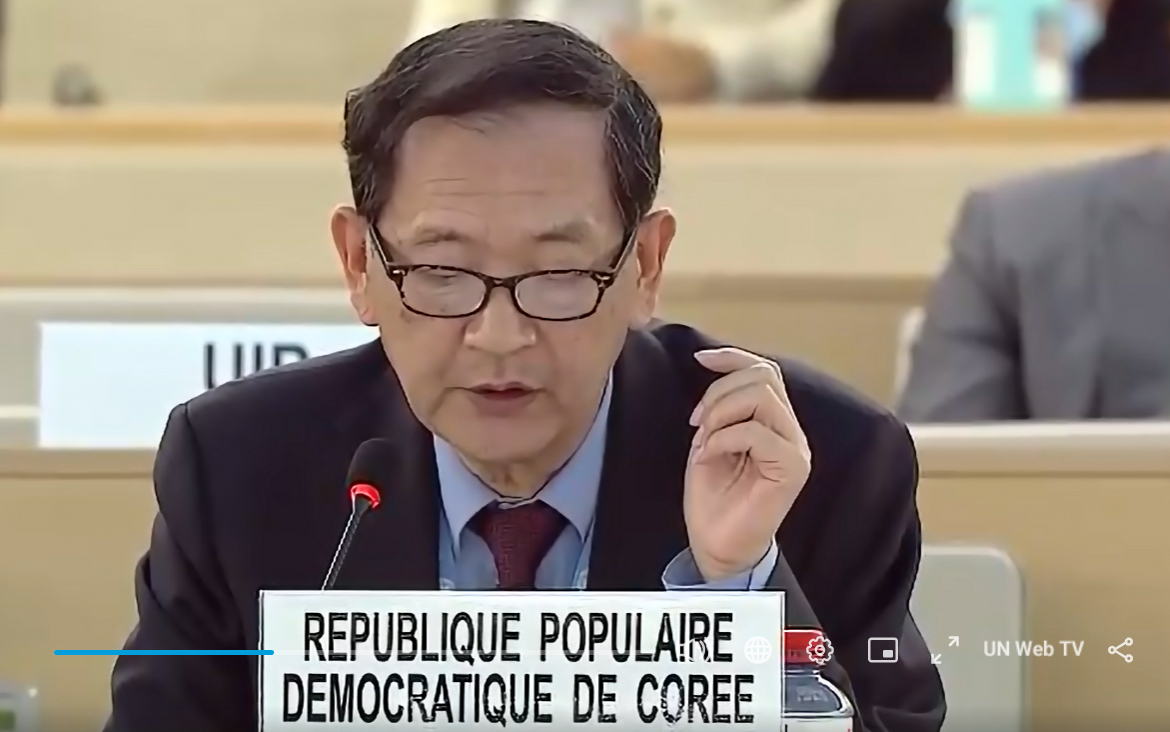
During the first day of the 51st session of the UNHRC council, a coterie of rogue states including China, Russia, Iran and North Korea rushed to Sri Lanka’s defence, touting the country’s alleged progress on human rights and asserting their opposition to UN resolution 46/1.
“We have no desire to dramatize the situation of human rights in Sri Lanka” claimed the Russian ambassador.
China’s ambassador slammed UN resolution 46/1, claiming it was the “product of politicisation” and that member states should respect the “choice of human rights development paths” adopted by different countries.
A representative from the rouge state of North Korea even defended Sri Lanka claiming that the human rights council was “politically motivated pressure and biased approach is counter-productive” and “undermines the dialogue and cooperation for the genuine promotion and protection of human rights”.
This staunch defence of Sri Lanka was endorsed by a number of states implicated in egregious human rights violations. Sudan, which witnessed a military coup last year, even applauded Sri Lanka for the “absence of hostilities since 2009”, omitting mention of numerous war crimes committed by the Sri Lanka armed that killed an estimated 169,796 people.
Syria’s ambassador claimed that the resolution on Sri Lanka was a “failed approach that must be stopped”.
Russia

In the Russian ambassador’s statement, he touted the alleged achievements of the Sri Lankan government highlighting reforms to Sri Lanka’s draconian Prevention of Terrorism Act (PTA) and efforts to resolve the issue of IDPs displaced from their homeland.
The Russian ambassador went so far as to applaud the “tolerance and restraint” of Sri Lankan officers who cracked down on anti-government demonstrators. The ambassador lashed out at the protesters noting the burning down of over 100 residents of political figures and called the arrests of “radicals and criminals” legally justified.
The Russian statement comes in sharp contrast to western condemnation of the abuses of Sri Lanka’s security forces on the crackdown on the peaceful demonstrators, abuse of the PTA and the exploitative use of Sri Lanka’s emergency regulations.
Read more here: ‘A persistent culture of impunity’ – Western governments slam Sri Lanka’s human rights record
The Russian ambassador claims that resolution 46/1 violates the principle of non-intervention and that the “investigation of violations is the prerogative of the country”.
Russia’s statement follows growing international condemnation and isolation of Russia following its illegal invasion of Ukraine. Despite this condemnation, Sri Lanka and Russia have deepened their ties.
China

The Chinese ambassador similarly defended Sri Lanka applauding the country’s efforts at “reconciliation, reconstruction and anti-terrorism”.
The ambassador added that it supports the country’s “national independence” and believed that resolution 46/1 failed to follow the “principles of impartiality, objectivity and non-selectivity”.
In a seeming nod to growing anxiety over Chinese role in Sri Lanka, the ambassador stressed that it opposed “any country taking advantage of the situation to seek geopolitical self-interest”. He added that, “each country to respect its choice of human rights development path according to its national conditions”. The ambassador urged countries to “abandon the strategy of political pressure and interference in national affairs”.
The statement follows a public spat between India and China, following the docking of a Chinese spy ship in the Chinese-owned harbour of Hambantota.
Read more here: Outrage as Chinese ambassador publicly attacks India and America
Iran

The Iranian ambassador maintained that:
“The Council should avoid politicization and refrain from political prejudices toward any country. These mechanisms should not be misused for the political goals of specific group of countries against developing nations”.
They added that there is no reason for Sri Lanka to be on the agenda and called on the Council to "abandon this interventionist approach" in SL.
Watch the full conference here.
